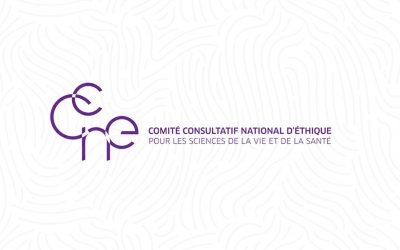At the end of March 2024, the administrative court in Montreuil registered two claims aimed at challenging the responsibility of the State, through the French national medicine agency (ANSM), for the delay in providing information to prescribers as well as to patients on the risk of developing meningioma when taking progestogens.
Currently, women are claiming compensation for the harm suffered. Other claims are to follow. The lawyer defending their claim has stated that he is holding 450 files concerning women who have taken Androcur or other progestogens, Luteran and Lutenyl. Some 50 individual judicial investigations have been ordered, of which the 20 already completed have all established the link of cause and effect between the taking of such medicines and the appearance of such meningioma. AMAVEA, an association in support of the victims of meningioma was launched in 2020.
Between 2019 and 2020, successive epidemiological studies have shown that the risk increases according to the dose received, for three progestogens (Androcur, Lutenyl, Luteran and their generics). In a statement dated January 2023, the national agency for the safety of medicines and health products (ANSM) indicated that in the context of reinforced monitoring following these studies, cases of meningioma occurring during treatments using other progestogens have also been observed. A “class” effect for progestogens on the risk of meningioma can therefore not be excluded.
What is meningioma?
Meningioma designates a tumour of the meninges, the membranes surrounding the brain and spinal chord. It therefore affects the brain but can also form in the spine. The warning signs of meningioma can be quite different according to its size and location. The most frequent symptoms are as follows (non exhaustive list): frequent headaches, hearing problems, dizziness, memory loss, speech impediment, weakness, paralysis, impaired vision, loss of the sense of smell, convulsions, nausea etc. They are difficult to treat, sometimes requiring complicated surgery and extended convalescence.
The disease can seriously disrupt the lives of sufferers. The meningioma may be discovered during a scan or MRI performed following various symptoms, such as headaches, or because some brain dysfunctions have already been observed (epileptic fits, neurological deficiency, confusion etc.). the treatment is surgical, sometimes combined with radiotherapy. Recurrence is not unusual.
What is the purpose of such treatments?
Progestogens are medicines sometimes prescribed beyond their marketing authorisation (AMM) for various gynaecological pathologies (endometriosis, fibroma, particularly long and/or abundant periods, cycle disorders), in substitute hormonal treatments (including for menopause), but also in obstetrics (sterility due to luteal phase deficiency, repeated abortions) or even in the “gender transition” phase.
According to some reports, people have been using this treatment for several years, even decades. However, the over-risk of meningioma, recognised since the 2010s, increases in proportion with the dose and the duration of treatment with cyproterone acetate.
Androcur (cyproterone acetate.)
This medicine contains a derivative of progesterone. It has an antihormonal action (anti-androgenic): it opposes the action of androgenous hormones (essentially testosterone) and therefore inhibits the effects of male sexual hormones. That is why it is used outside AMM in “gender transition” processes by men who wish to reduce their physical masculine sexual characteristics (pilosity, muscular mass etc.) and to enhance their secondary feminine sexual characteristics (breast size).
In men, its action slows the growth of prostate cells. It is therefore recommended in cases of prostate cancer.
In women, androgenous hormones are present in small quantities and are involved in pilosity disorders and in cases of excess sebum. This treatment is used in severe cases of acne and hirsutism (excessive pilosity)
Lutenyl and its generics (nomegestrol) and Luteran and its generics (chlormadinone acetate)
These are derivatives of progesterone. They are used in certain invalidating gynaecological diseases such as endometriosis, very abundant, irregular and extended periods, whether or not linked to fibroma. These medicines are sometimes prescribed outside AMM as a contraceptive.
The risks have been known since long ago
The identification of the risk of encouraging the appearance of meningioma is not recent. The first pharmacovigilance alert dates back to 2004. As early as 2007, a study on Androcur already identified the risk. It was clearly established and made public by the ANSM in 2018 through a study involving 4,000,000 women. That same year, moving witness accounts by women were emerging.
In 2019, the increased risk of developing intracranial tumours during pregnancy in women having previously been treated with Androcur, well after ending the treatment, was also revealed. In fact, in cases where a woman having been under treatment develops an unidentified or undetected meningioma, the pregnancy period becomes singularly risky since quite naturally, the body then produces a very large amount of progesterone, which triggers a sudden increase in size of the meningioma.
In a study conducted on 287 women, 56% had been treated with Androcur for acne or contraception, for an average exposure duration of 15 years. It is also stated that the first diagnoses of meningioma date back to 1995.
The recommendations accompanying the prescriptions have evolved since 2018. Firstly, professionals should not prescribe or should end the treatment in the event of appearance of meningioma. Then, in 2020, MRI screening was introduced at the start and in the course of treatment.
According to the president of the AMAVEA association, Emmanuelle Huet-Mignaton, “Ten years have been wasted”, in properly informing prescribers of the risks. However, “This delay in providing precise and detailed information constitutes an offence by the health authority.” According to Mr. Joseph-Oudin, the lawyer for the women having staked claims. “This case on progestogens constitutes a major public health scandal. For years, thousands of women have been exposed to very high doses of a product which was nevertheless suspected of creating very serious cerebral tumours”.
See all our articles on health subjects.



